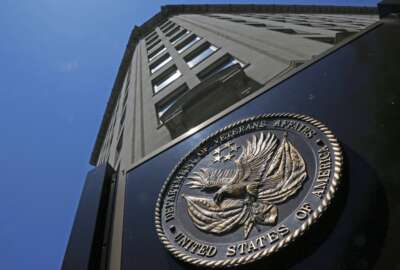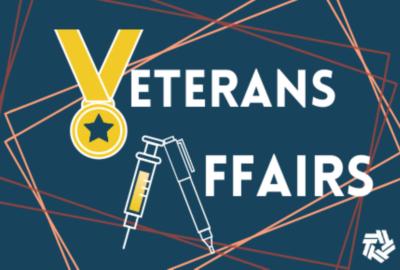Senate passes $3B VA supplemental funding bill, averting delay in veterans’ benefits
VA needed emergency funding by Friday to avoid delays in compensation and pension benefit payments that go to 7 million veterans and their survivors.
The Senate passed a $3 billion supplemental funding bill, allowing the Department of Veterans Affairs to pay veterans’ benefits without delay.
The Senate unanimously passed the supplemental funding bill in a voice vote Thursday. This bill now heads to President Joe Biden’s desk to be signed into law.
VA Secretary Denis McDonough tweeted Thursday that the supplemental funding “will go directly to earned benefits” for about 7 million veterans and their families.
“We’re delivering more benefits to more of these heroes than ever before, and now, we can continue to do that without any interruption or delay,” McDonough wrote.
VA officials warned lawmakers in July that the Veterans Benefits Administration faced a $3 billion budget shortfall by the end of fiscal 2024.
The VA needed Congress to approve the emergency funding by Friday, to avoid a delay in compensation and pension benefit payments that go to 7 million veterans and their survivors.
Senate VA Committee Chairman Jon Tester (D-Mont.) said the VA faced this budget shortfall because it issued more benefits to more veterans than expected under the PACT Act.
The 2022 law made more veterans eligible for VA health care and benefits, if they were exposed to toxic substances during their military service.
“This shortfall exists because the PACT Act is working for toxic-exposed veterans and survivors in Montana and across the country, and as a result, more veterans and their loved ones are receiving benefits than ever before,” Tester said.
Under Secretary for Benefits Joshua Jacobs told the Senate VA Committee on Wednesday that the $3 billion supplemental accounts for nearly a week’s worth of payments.
“Any funding shortfall of even $1 would prevent VA from processing its September pay file, and as a result, delay benefit payments,” Jacobs said.
Jacobs said VBA faced the year-end budget crunch because more veterans are receiving more benefits than expected under the PACT Act.
Republican lawmakers criticized VA leaders for only notifying Congress of the budget shortfall in July, months after defending their fiscal 2025 budget request before House and Senate Committees.
Jacobs said the VBA stayed on track with this year’s spending plan through this spring.
During a mandatory mid-session review in July, however, VBA updated its projections, and estimated it would complete 2.5 million claims decisions by the end of fiscal 2024 — about 300,000 more claims than it anticipated.
Sen. Patty Murray (D-Wash.) said the VA needed the supplemental funding to provide benefits to a growing number of eligible veterans.
“As we implement laws like the PACT Act, which makes worthwhile expansion of our veterans care, there’s going to be some growing pains. That is frustrating, but it is not unheard of,” Murray said. “The important thing, and I think we all agree here, is meeting those needs and keeping our word to our veterans and their families.”
Senators rejected Sen. Rand Paul’s (R-Ky.) amendment to the bill that would have rescinded nearly $3 billion from the Energy’s Department loans programs office to cover the VA’s budget shortfall.
“Rather than borrow more money and put ourselves further into debt … why don’t we find something in the budget maybe that’s not an emergency, take the money from there, and pay for the veterans’ benefits?” Paul said.
The House passed the $3 billion supplemental spending bill Tuesday evening. Republican leaders in the House introduced the bill earlier this month.
Rep. Mike Garcia (R-Calif.), who led the bill in the House, praised the Senate in a tweet for passing the legislation to “avoid the cliff that comes on Friday.”
“We should have zero gaps or zero lapses in coverage,” Garcia said.
While Tester said VA’s request for additional funds “is what paying the true cost of war looks like,” Republican lawmakers blamed the shortfall on mismanagement of funds, and demanded greater transparency into the VA’s budget.
Sen. Dan Sullivan (R-Alaska) introduced the Protecting Regular Order (PRO) for Veterans Act, which would require the department to provide quarterly budget updates to Congress for the next three years.
“We’re going to get this money done. We’ll get it. We want to make sure our veterans have their benefits. But in exchange, we’re asking, ‘Hey, what’s going on over at the VA?’ I mean, we see this all the time,” Sullivan said on the Senate floor.
The PRO Vets Act would also withhold bonuses for senior VA and Office of Management and Budget Officials if the department faces additional budget shortfalls.
“If you were part of the team at a senior level that screwed up the budget, you don’t get a bonus,” Sullivan said. “What’s wrong with that?”
Sullivan pointed to VA leadership awarding nearly $11 million in bonuses to senior career executives not eligible to receive them as evidence of the department’s “mismanagement.”
“The Congress, even the Veterans Affairs Committee is becoming numb to these kinds of shortfalls and these kind of dysfunctional approaches to management for our veterans,” he said.
Sullivan also criticized VA leadership for allowing certain employees to continue to work from home for most of each two-week pay period.
“Most of the federal government is still doing remote work. Most federal employees still work in their pajamas next to a computer at home,” he said. “Most VA workers in D.C. work at home in their pajamas. Can you believe that, America? We got these big, beautiful federal buildings here, and nobody comes into them. I mean, come on.”
The Office of Management and Budget reported last month that telework-eligible federal employees are working in their offices about 60% of the time.
Jacobs told the Senate VA Committee on Wednesday that VBA employees in regional offices are required to come into the office at least two days per two-week pay period. VBA, employees, he added, have increased their productivity in recent years.
Lawmakers have yet to act on the Veterans Health Administration’s request for an additional $12 billion before the end of fiscal 2025.
Under Secretary for Health Shereef Elnahal said VHA needs to keep hiring to stay ahead of higher-than-expected demand for care under the PACT Act.
“The main driver of this is delivering more care to veterans than ever before, and we stand by our decision to open the doors into the health care system for more veterans,” he said. “I pledge to you that we will be as transparent as possible as we move forward, and we do think this is a good investment for future veteran care into the next fiscal year.”
Copyright © 2025 Federal News Network. All rights reserved. This website is not intended for users located within the European Economic Area.
Jory Heckman is a reporter at Federal News Network covering U.S. Postal Service, IRS, big data and technology issues.
Follow @jheckmanWFED






